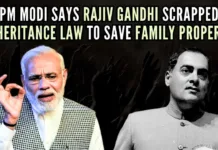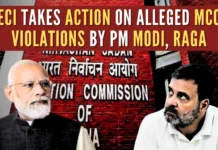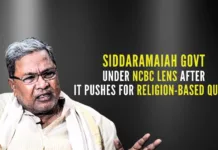
Success in local body elections depends greatly on the network of foot soldiers who are familiar with the topography and demography of the region.
Encouraged by its astounding victory in the Delhi Assembly elections, the Aam Aadmi Party (AAP) is now eyeing the national stage. One of its senior members, Gopal Rai said that the party plans to contest local body elections across the country to expand its footprint. There is nothing wrong in the desire but this is not the time, contrary to some opinion that there could not be a more right time to do so.
Most successful regional parties have done well by concentrating on their home bases, whether it is the DMK, the Trinamool Congress or the Janata Dal (United).
The AAP has got a massive mandate from the people of Delhi to deliver on its promises and on what it has also delivered. This places an even greater responsibility than in 2015 on Chief Minister Arvind Kejriwal and his team. They have to concentrate fully on Delhi if they have to maintain the momentum and seek to replace the BJP in the polls to the Municipal Corporation of Delhi that is due in a couple of years. The Aam Aadmi Party exists because of Delhi, and if it ignores its core constituency it will come a cropper elsewhere. There is every possibility of a regional party losing ground in its home State if it begins to focus undue attention in other places.
Most successful regional parties have done well by concentrating on their home bases, whether it is the DMK, the Trinamool Congress or the Janata Dal (United). Those that sought to have national ambitions, like the Nationalist Congress Party, suffered in the general elections in their home States. The AAP too has had experience of that. Arvind Kejriwal, nurturing national ambitions, had contested against Narendra Modi in Varanasi, and failed. His party fared poorly in the Assembly elections in Punjab and Goa, and its foray in Haryana also did not yield results. After that, the party had returned to focussing on Delhi, which was a wise move and it paid a dividend in 2020.
Success in local body elections depends greatly on the network of foot soldiers who are familiar with the topography and demography of the region. They should have been working among the people for long. The AAP does not have those resources beyond Delhi. It can be argued that the network can be built over time, but that would mean the regional party would have to divert its attention away from Delhi. On the other hand, national parties, with a pan-India presence, have the means to work simultaneously in different States. The AAP must realise that while ambition is fine, over-ambition can be fatal.
There is also talk of an AAP-model of governance to be tried across the country, in other States. Who will do that? Will the Congress-ruled States announce that it would adopt the so-called model in AAP’s name? Besides, what is that model? Freebies? It is already there in many States in some form or the other. Does it, therefore, mean, good governance? No party, regional or national, will accept that it does not have robust governance in place and that it needs to adopt the AAP model.
Once upon a time, he had called Modi a “psychopath”, and his senior leaders had poured venom on Modi’s senior colleagues such as Arun Jaitley.
Some political commentators, no doubt buoyed more by the BJP’s defeat in Delhi than by the AAP’s success, have been suggesting that the AAP should play a prominent role in building an anti-Modi front across the country. In the first place, this experiment has been tried and has failed repeatedly. Second, what role can the AAP play beyond Delhi? Assuming it decides to contest in Haryana or Delhi, for example, will the Congress accommodate the party in seat division? Unlikely. Will Mamata Banerjee, who was quick to congratulate Kejriwal for his victory, offer seats to the AAP in West Bengal as part of an alliance? Will the Nationalist Congress Party part from within its quota in Maharashtra?
Over the years, Kejriwal has scaled down his and his party’s ambitions, and sensibly so. He realised the futility of taking on Modi directly, knowing that he simply does not match the Prime Minister charisma and hold on the national stage. This is one of the reasons why throughout his Delhi Assembly poll campaign, he did not attack the Prime Minister, nor did he rake up national issues — a patch that the BJP was luring the AAP to play on. Kejriwal to issues of Delhi, such as water, electricity, health, education and sanitation.
Kejriwal’s change in tactics has been welcomed by all, including the voters, most of whom still prefer Modi over him when it comes to the national arena. Once upon a time, he had called Modi a “psychopath”, and his senior leaders had poured venom on Modi’s senior colleagues such as Arun Jaitley. The other transformation is that Kejriwal seems to have abandoned the path of needless confrontation with the Centre — though one has to wait and see if, in his fresh tenure, the Chief Minister actually continues with this attitude. After all, political rivalries need not necessarily result in conflicts that harm the interests of the people. Kejriwal’s transformation from a rebel-activist to a politician who has to function within the parameters of rules has been more pronounced than before. He seems to have called an end to dharna politics. One can only hope that he does not revive it; his sit-in, for instance, at the Lt Governor’s residence, where he spent some nights on a sofa along with a few of his colleagues, was distasteful.
All in all, Kejriwal appears to be sobering, though he does display streaks of irresponsible conduct at times. The thrust of responsibility has mended many a leader, and Kejriwal now has a greater responsibility. There are areas where he has not delivered despite his tall promises — such as the constitution of a Lok Pal for Delhi. The educational sector too is not as robust as it is made out to be; Manish Sisodia, Education Minister in the previous government, barely managed to retain his seat. The scarcity of clean drinking water is a real issue. The AAP government’s refusal to implement the Centre’s Ayushmann Bharat scheme as well as the Centre’s project for housing to all was driven by petty politics. One hopes that Kejriwal will now give up on that and work with the Centre for the larger welfare of the people of Delhi.
Note:
1. The views expressed here are those of the author and do not necessarily represent or reflect the views of PGurus.










